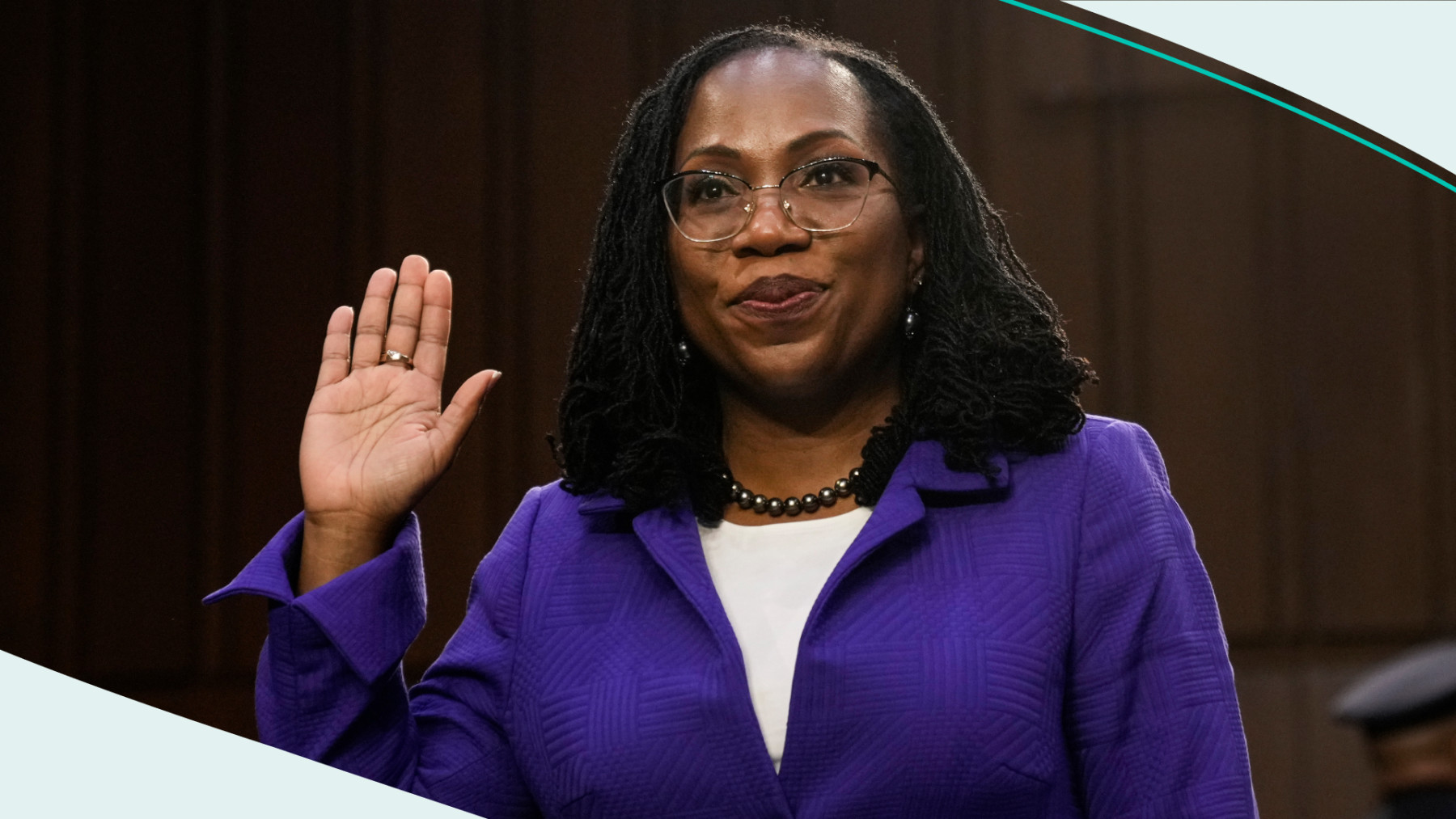| Sreemoy Talukdar brings you the essential cheat sheet on foreign affairs covering India and the world |  | | This week we have deliberately refrained from giving war updates and instead focused on the geopolitical shifts Russia's invasion of Ukraine has generated. We also focus on India's periphery, where Sri Lanka is facing an economic meltdown (pic above) and Pakistan PM Imran Khan seems to be on his way out. | | TOP FIVE NEWS UPDATES | | Wang Yi lands in India for an "unannounced" trip as suitors from all corners woo New Delhi | | The Ukraine war is happening in the European theatre, but its ripples are spreading across and shifting the equations in Indo-Pacific. India is bang in the middle of the churn. In a span of seven days, Indian prime minister Narendra Modi hosted Japanese PM Fumio Kishida for the 14th annual summit that called for "an immediate halt to violence in Ukraine" and resulted in Japan's declaration of investing $42 billion in India over five years. A report in Japan Times caught the pulse in its report that Kishida tried to "push India, which has traditionally had close ties with Russia, to align with it, the United States, Europe and others in condemning the Russian aggression in Ukraine." Close on the heels of Japan summit Modi and Scott Morrison held the India-Australia virtual summit on 21 March where too Ukraine formed a central theme but Morrison reportedly had a greater understanding of India's position. You can read the India-Australia joint statement and foreign secretary Harsh Shringla's presser on the visit here. It is evident that India is in a diplomatic sweet spot, being courted by all sides including the Quad partners and even the UK, whose prime minister held a telephone chat with Modi ostensibly to influence the biggest swing state. This is also giving rise to some tensions. India has asked a UK cross-party delegation to not bother paying a visit to New Delhi when it became clear that the group was on a lecturing mission. The icing on the cake, however, came with an "unannounced" visit by Chinese foreign minister Wang Yi. It is a remarkable development since, as NDTV points out in a report, "the suspense over the visit persisted till the last minute and there was no official confirmation of the visit even when the Chinese minister landed in Delhi. The landing could be confirmed only through tracking the flight path of his plane, which took off from Afghanistan." The visit is even more interesting because Wang touched down in India a day after India slammed China for its comments on Kashmir at an OIC meeting in Islamabad. Indian Express reports that Wang is likely to meet External Affairs minister S Jaishankar and NSA Ajit Doval on Friday, A meeting with PM Modi is reportedly unlikely. Before reaching Delhi, Wang had made an "unscheduled stop" in Afghanistan. Wang's discussion with Jaishankar and Doval may include the way forward in resolving the LAC standoff, BRICS summit in Beijing this year, and the situation in Ukraine. Wang flies to Kathmandu from India. | | India abstains from voting at UN again, EAM says steps being taken to tackle trade hurdles with Russia | | On Thursday, India again abstained in the UN General Assembly on a resolution by Ukraine and its allies on the humanitarian crisis in war-torn eastern European country. "The 193-member General Assembly resumed its 11th Emergency Special Session on Ukraine and voted Thursday on a draft resolution 'Humanitarian consequences of the aggression against Ukraine' by Ukraine and its western allies. The resolution was adopted with 140 votes in favour, 38 abstentions and five against," reports NDTV. India's permanent representative to the UN TS Tirumurti issued an explanation on India's vote, saying that India abstained because "what we require now is to focus on cessation of hostilities and urgent humanitarian assistance. The draft resolution did not fully reflect our expected focus on these challenges." The day before, India along with 12 other UNSC members had skipped voting on a resolution, this time one brought by Russia on the humanitarian crisis in Ukraine that called for "negotiated ceasefire for enabling safe, rapid, voluntary and unhindered evacuation of civilians, and underscores the need for the parties concerned to agree on humanitarian pauses to this end." The US, which also abstained along with India, called it "farcical". Meanwhile, Union external affairs minister S Jaishankar on Thursday told the Rajya Sabha that India's foreign policy decisions are made in "national interest" and guided by the belief that the international order "must respect territorial integrity and sovereignty of states". In a written statement laid on the table of the Upper House, Jaishankar said "India's position is not that the situation involving Russia and Ukraine 'is not our problem. Our position is that we are for peace'," reports Indian Express. The minister also outlined six principles on which India has based its Ukraine response. To another question, Jaishankar said a 'multi-ministerial' group has been formed to assess trading with Russia, "including managing payments for exporters and importers in comments that indicate a possible revival of "Rupee-Rouble trade," observes The Hindu. | | US does damage control after Biden calls India 'shaky'; visiting US official makes a 'big' offer | | India also played host two high-ranking US officials this week, whose visit was part of the continued effort of US and allies to influence New Delhi's neutral stance on Ukraine war. The reason why the visit of US undersecretary of state for political affairs Victoria Nuland — whose role in the 2014 'Maidan revolution' in Ukraine has been much discussed — needs special attention, however, is that Nuland and Pentagon official Donald Lu during their two-day visit from March 21 and in the course of their meeting with Jaishankar and foreign secretary Shringla reportedly offered "to replace practically everything that India sources from Russia," according to a report from The Tribune. Later, in an interview to NDTV, Nuland said, "democracies need to stand together and evolve their position vis-a-vis Russia because of the choices Putin has made. Democracies must stand against autocracies like Russia and China," and added that "this was conveyed to New Delhi." Interestingly, Nuland's visit came just hours after US President Joe Biden called India "somewhat shaky" in its support for sanctions against Russia, in comparison to other Quad partners Japan and Australia during a business roundtable in Washington. Biden's remark got wide play and raised eyebrows in India, and the day after US State Department went into a damage control exercise, and reiterated that partnership with India remains a high priority for the US. Spokesperson Ned Price said on Tuesday, "We are a partner of India when it comes to shared interests, when it comes to the values we share in a free and open Indo-Pacific. And we've invested in that relationship in terms of our defense and security. So historical relationships notwithstanding, we are a partner of choice for India now, as are many of our partners and allies around the world." | | Families flee to India as Sri Lanka's economic meltdown turns worse | | Faced with an unprecedented economic meltdown Sri Lankans are making a risky journey in boats across the sea to reach India. According to a report in Indian Express, "on Tuesday, 16 Sri Lankan nationals, all Tamils from the Jaffna and Mannar regions in the north, reached Tamil Nadu in two batches. The first set of six refugees, including three children, were stranded near an island off the coast of Rameswaram and rescued by Coast Guard. The second group of ten reached late in the night." The refugees, according to police, " were fleeing unemployment and shortage of food in Sri Lanka" and intelligence officers in Tamil Nadu believe that "around 2,000 refugees" are likely to arrive in the coming weeks. While question mark remains over the status of the 16 Sri Lankan nationals who arrived in India the bigger worry is Sri Lanka's spiraling economic crisis. The situation is so bad that there is a delay in printing school textbooks due to the shortage of paper and other related accessories. The nation has ordered its military to post soldiers at hundreds of gas stations on Tuesday to help distribute fuel after a sudden rise in prices of key commodities. Sri Lanka is battling a foreign exchange crisis that has forced the devaluation of its currency and hit payments for essential imports such as food, medicine and fuel, prompting the government to approach the IMF, says a Reuters report. Sri Lanka has turned to India in the hour of crisis. As Quartz observes in a report, "Since January, India has helped with $2.4 billion, including a $400-million currency swap and a $500-million loan deferment for two months. On March 17, Sri Lanka signed a $1-billion credit line with India for the procurement of food, medicines, and other essential items." But the struggling nation needs more. It has also sought $2.5 billion in help from China. "The request is still being considered, but if Beijing agrees, it will further deepen the already sizeable debts Sri Lanka owes to China," says SCMP. | | Staring at ouster, beleaguered Pakistan PM Imran Khan stays defiant and unwilling to resign | | Pakistan prime minister Imran Khan's days are numbered. We have been listening to this prediction for a while now, but it seems that the end is finally near, though the climax is being stretched to the point of boredom. Everyone knows that you cannot cross the army and hope to stay in power in Pakistan but Imran, in true sportsman spirit, is trying the impossible. As Hindustan Times says in a report, "with the Opposition tabling the no-confidence motion against the ruling Tehreek-i-Insaaf (PTI) government tomorrow, Imran has turned so desperate to save his job that he turned 180 degrees in his comments towards Pakistan Army after praising the Indian government for its independent foreign policy and the Indian Army for not being corrupt." Pakistan's all powerful military has reportedly asked him to resign informally and wants him to resign "respectfully" on his own. But if Imran refuses to do so, the Pakistani PM "will be removed from the office, and sent to the jail in a foreign funding case, according to sources from Pakistan," reports News 18. Adding to Imran's woes, three of his coalition's allies have decided to join the Opposition alliance, reports Times of India, quoting local media. But Imran is still braving it out. On Thursday, a day ahead of the no-confidence vote, Imran told reporters: "I will not resign under any circumstance. I will play till the last ball and I will surprise them a day before as they are still under pressure." | | | | | | | | | | TOP ANALYSES OF THE WEEK | | India is wondering if it placed too much faith in the West | | Mihir Sharma writes in Bloomberg (via Business Standard) that "to India and many other developing countries, Western powers and the institutions they dominate appear to have different standards for conflicts close to home" and are "blind to the impact of these sanctions on the rest of the world." | | Fissure over Ukraine will compel US to think about India realistically | | Ashley Tellis, one among noted India experts in the US, tells Prashant Jha of Hindustan Times in an interview that "the fissure over Ukraine may yet have one useful purpose, which is that it has compelled the United States, to think about India realistically. Sometimes we tend to imagine that India will support us everywhere simply because we have clear convergences in the Indo-Pacific. But India has its own ambitions and its own interests." | | On India-Russia ties, US should take a step back | | "On Russia-India ties, the best thing the US government can do is take a step back," Jeff Smith, research fellow at The Heritage Foundation, writes in RealClear World. | | It is springtime again for 'democracy export' industry in US | | Sohrab Ahmari, founder and editor of Compact magazine, writes that "it it is springtime again for the "democracy" export industry: for their governmental operatives (Victoria Nuland, Michael McFaul), institutions (National Endowment for Democracy, Freedom House), and pet theorists (Bernard-Henri Lévy, Robert Kagan, Francis Fukuyama, Larry Diamond). As for media organs, the hawks' takeover of mainstream, left-of-center outlets is so thorough as to render the old neoconservative bastions almost superfluous." | | West principally responsible for Ukraine crisis: Mearsheimer | | Political scientist John Mearsheimer writes in The Economist that "The West, and especially America, is principally responsible for the crisis which began in February 2014. It has now turned into a war that not only threatens to destroy Ukraine, but also has the potential to escalate into a nuclear war between Russia and NATO." | | Putin's war is a debacle and a strategic catastrophe | | Although Putin's war has been an operational debacle, it has also proved to be a strategic catastrophe that has already seen many of the Russian president's greatest fears become a reality, write Jack Detsch and Amy Mackinnon in Foreign Policy. | | Both India and China don't want to see an isolated Russia | | "Both China and India don't want to see a much weakened, much isolated Russia, which means a more vulnerable regional and global order. At least in the Ukraine crisis, both India and China have many commonalities. We had better discuss this to see what we two can do for ending this crisis," Hu Shisheng, a Beijing-based Chinese expert on India-China relations, tells Ananth Krishnan of The Hindu in an interview. | | It is in US interest to ringfence India from fallout of sanctions | | "An economically, politically and militarily weakened India would leave the Quad incapable of comprehensively dealing with threats in the Indo-Pacific. It is therefore in the US' interest to appreciate India's independent manoeuvres designed to ring-fence itself from the fallout of the current crisis", Surya Kanegaonkar, a Switzerland-based columnist and commodities trader writes in News18. | | How did everything go so wrong in Sri Lanka? | | "Mounting debt, foreign exchange squeeze and runaway inflation. Sri Lanka's economy is in a hole but it's not the first time. The country has long been identified as an exception in south Asia because of its social development. But did it get everything wrong about its economy while trying to 'help' its people?", Chandrima Banerjee explains in Times of India. | | Odds are stacked against Imran Khan | | With Pakistan prime minister facing an ouster via no-trust vote, columnist Zahid Hussain writes in Dawn: "the shelf life of a civilian government in Pakistan is generally three and half years. It is rare for any prime minister to have crossed that mark. Most prime ministers have been removed either through extra-constitutional or extra-parliamentary means; two have been ousted by judicial action. But there has not been any instance of a prime minister having been removed through a vote of no-confidence." | | PODCAST WATCH | | What does India's new Arctic policy tell us? | | We recommend this edition of Stratnews Global podcast The Gist, where host Surya Gangadharan speaks to Uttam Sinha of the Delhi based Institute for Defence Studies & Analyses on India's new updated Arctic policy, its "six pillars", and what India seeks to achieve. | | | | Copyright © 2022.Firstpost - All Rights Reserved. | |

















